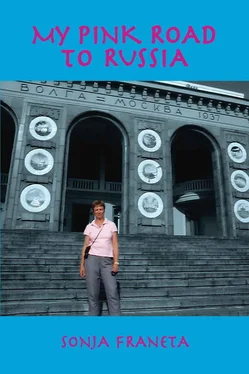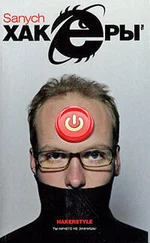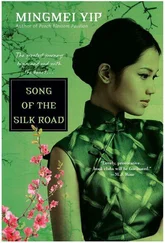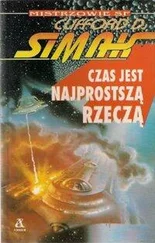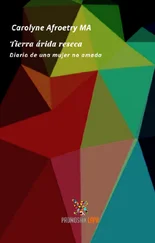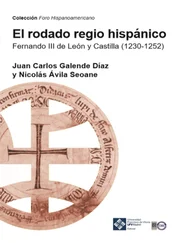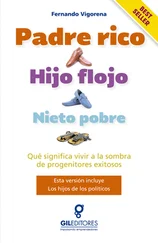“Kaleidoscope” uses variations of my name Sonja (which is the Yugoslav spelling of Sonya or Sonia.) In Russian Sophia is the given name and Sonya is a nickname, also Sonechka. In the poem, Tsvetaeva’s lines “bylo telo, xotelo zhit’” mean “there was a body, it wanted to live,” an example of her wordplay— telo (body) xotelo (wanted). This was Marina’s hallmark. The line comes from her intense and dramatic narrative poem “Poem of the End” (1924) about the end of her affair with a Russian White Army officer and friend of her husband, in Prague.
“My Tsvetaeva” I have read many books by and about Tsvetaeva; Simon Karlinsky’s and Lily Feiler’s biographies are the best. Good translations of Tsvetaeva poetry are difficult to find; some translations are available on the internet. Marina Tsvetaeva’s name is sometimes transliterated as Cvetaeva. Translations into English in this book are mine unless otherwise credited.
It is worth quoting Marina Tsvetaeva’s vision of the poet without a nation in a letter to Rilke here. The text is from Nina Kossman’s “Translator’s Note” in Tsvetaeva’s Poem of the End: Selected Narrative and Lyrical Poems . From Tsvetaeva’s letter to Rilke in July 1926:
Goethe says somewhere that one can’t create anything worthwhile in a foreign language, yet I’ve always thought this was wrong… What is writing poetry but translating, from a native [i.e., inner-NK] tongue to a foreign one? —Whether French or German doesn’t make any difference. …For that reason I don’t understand why people speak of French, Russian, etc., poets. A poet may write in French yet not be a French poet…I’m not a Russian poet and am always puzzled when I’m seen as one. This is just why one becomes a poet (if it were possible to become one, if one were not born a poet!)—in order not be French, Russian, etc., in order to be all of them. In other words, one is a poet because one is not French. Nationality—the shutting out and shutting in. Orpheus bursts nationality, or extends its boundaries so far and wide that all (the bygone and the living) are included in it. [translation by N. K.)
Abelove, Henry, et al, eds. The Lesbian and Gay Studies Reader (New York: Routledge, 1993). This excellent collection contains the articles by Judith Butler, Teresa de Lauretis, Audre Lorde, Adrienne Rich, Gayle Rubin, Eve Kosovsky Sedgwick, and Barbara Smith mentioned in “Sissies and Queers.”
Allen, Paula Gunn. The Sacred Hoop: Recovering the Feminine in American Indian Traditions (Boston: Beacon, 1992).
Anzaldua, Gloria E. Interviews Entrevistas , edited by AnaLouise Keating, (New York: Routledge, 2000).
Baldwin, James. “A Talk to Teachers,” in Simonson and Walker eds., The Graywolf Annual Five: Multicultural Literacy (St. Paul: Graywolf Press, 1988).
Blumenfeld, Warren, ed. Homophobia: How We All Pay the Price (Boston: Beacon Press, 1992).
Bornstein, Kate. Gender Outlaw: On Men, Women, and the Rest of Us (New York: Vintage, 1994).
Brossard, Nicole. The Aerial Letter (Toronto: The Women’s Press, 1988).
Burgin, Diana. Sophia Parnok: The Life and Work of Russia’s Sappho (New York University Press, 1994).
Butler, Judith. Gender Trouble: Feminism and the Subversion of Identity (New York: Routledge, 1999).
Cameron, D. The Feminist Critique of Language (New York: Routledge, 1998).
Davis-Kimball, Jeannine, with Mona Behan. Warrior Women: An Archaeologist’s Search for History’s Hidden Heroines ( New York: Warner Books,2002).
Efron, Ariadna. No Love Without Poetry: The Memoirs of Marina Tsvetaeva’s Daughte r (Evanston: Northwestern University Press, 2009).
Efron, Ariadna and Federolf, Ada. Unforced Labors (Moscow: Vozvrashchenie, 2006).
Ensler, Eve. The Vagina Monologues: Acting Edition (New York: Dramatists Play Service Inc., 2000).
Feiler, Lily. Marina Tsvetaeva: the Double Beat of Heaven and Hell , London: Duke University Press, 1994).
Feinberg, Leslie. Transgender Warriors: Making History from Joan of Arc to Dennis Rodman (Boston: Beacon,1997).
Franeta, Sonja. “Amazon Sisters on the Trans-Siberian Railroad,” in Lesbian Travels: A Literary Companion ed, edited by Lucy Jane Bledsoe (San Francisco: Whereabouts Press, 1998).
Franeta, Sonja. Berry of a Mountain Bush (San Francisco, 2002). A chapbook.
Franeta, Sonja. Rozovye Flamingo: 10 Sibirskie Intervyu [ Pink Flamingos: Ten Siberian Interviews ] (Tver, Russia: Ganimede Press, 2004).
Freire, Paulo. Education for Critical Consciousness (New York: Continuum, 1998).
Gessen, Masha. The Man Without a Face: the Unlikely Rise of Vladimir Putin (New York: Riverhead, 2012).
Grahn, Judy. Another Mother Tongue (Boston: Beacon Press, 1990).
Grahn, Judy. A Simple Revolution (San Francisco: Aunt Lute Books, 2012).
Gusyatinskaya, Elena. Anthology of Lesbian Prose [in Russian] (Tver, Russia: Kolonna, 2006).
Healey, Dan, Homosexual Desire in Revolutionary Russia (Chicago: University of Chicago Press, 2001). The best study of Russian LGBT history.
Herdt, Gilbert. Same Sex, Different Cultures (Boulder: Westview Press, 1997).
Hoffman, Eva. Lost in Translation (New York: Penguin, 1989).
Horne, S. G., Overbo, E., Levitt, H. M., & Franeta, S. “Leaving the Herd: The Lingering Threat of Difference for Same-Sex Identities in Post-Communist Russia.” ( Sexuality Research and Social Policy: Journal of NSRC , 6, 88-102, 2009.) A research article based on our interviews with LGBTs in Russia.
Hooks, Bell. Teaching to Transgress (New York: Routledge,1994).
Jagose, Annamarie. Queer Theory: An Introduction (NY: NYU Press, 1996).
Karlinsky, Simon. Marina Tsvetaeva: The Woman, Her World, and Her Poetry (New York: Cambridge Univ. Press, 1986). No translation exists of Story About Sonechka and other works by Tsvetaeva, but Karlinsky’s book has indispensable information about her life and works.
Karlinsky, Simon. Marina Cvetaeva: Her Life and Art (Berkeley: University of California Press, 1966). Karlinky’s Ph.D thesis, a radical view of Tsvetaeva for the times.
Kon, Igor S. The Sexual Revolution in Russia (New York: The Free Press, 1995).
Contextualizing of LGBT sexuality in the history of sex in Russia by a gay Russian scholar.
Kudrova, Irma. The Death of a Poet: The Last Days of Marina Tsvetaeva (Woodstock: Overlook Press, 2004).
Le Guin, Ursula K. “Bryn Mawr Commencement Address,” in Dancing at the Edge of the World: Thoughts on Words, Women, Places (New York: Harper and Row, 1986).
Lipkin, Arthur. Understanding Homosexuality, Changing Schools (Boulder: Westview Press, 1999).
Livia, Anna, and Kira Hall, eds. Queerly Phrased: Language, Gender, and Sexuality (New York: Oxford University Press, 2000).
Mandela, Nelson. Nelson Mandela Speaks: Forging a Democratic, Nonracial South Africa (New York: Pathfinder Press,1993).
Michaels, Anne. Fugitive Pieces (New York: Vintage, 1996).
Mladjenovich, Lepa. “Notes of a Feminist Lesbian During Wartime,” at ILGA.org http://ilga.org/ilga/en/article/mnxfDO012C
Norton, Bonnie, and Aneta Pavlenko, eds. Gender and English Language Learners (TESOL, 2004).
Pinar, William F., ed. Queer Theory in Education (Mahwah, NJ: Lawrence Erlbaum, 1998).
Polyakova, Sophia. Zakatnye Ony Dni: Cvetaeva i Parnok [Sunset Days of Yore: Tsvetaeva and Parnok] (Ann Arbor: Ardis, 1983).
Читать дальше
